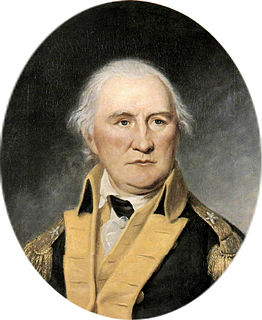A Quote by Plato
Misanthropy ariseth from a man trusting another without having sufficient knowledge of his character, and, thinking him to be truthful, sincere, and honourable, finds a little afterwards that he is wicked, faithless, and then he meets with another of the same character. When a man experiences this often, and more particularly from those whom he considered his most dear and best friends, at last, having frequently made a slip, he hates the whole world, and thinks that there is nothing sound at all in any of them.
Quote Topics
Afterwards
Another
Any
Best
Best Friend
Character
Considered
Dear
Experiences
Faithless
Finds
Frequently
Friends
Hates
Having
Him
His
Knowledge
Last
Little
Made
Man
Meets
Misanthropy
More
Most
Nothing
Often
Particularly
Same
Sincere
Slip
Sound
Sufficient
Them
Then
Thinking
Thinks
Those
Trusting
Truthful
Whole
Whole World
Whom
Wicked
Without
World
Related Quotes
What I do is give Ennio Morricone suggestions and describe to him my characters, and then, quite often, he'll possibly write five themes for one character. And five themes for another. And then I'll take one piece of one of them and put it with a piece of another one for that character or take another theme from another character and move it into this character.... And when I have my characters finally dressed, then he composes.
The Enemy wants to bring the man to a state of mind in which he could design the best cathedral in the world, and know it to be the best, and rejoice in the fact, without being any more (or less) or otherwise glad at having done it than he would be if it had been done by another. The Enemy wants him, in the end, to be so free from any bias in his own favour that he can rejoice in his own talents as frankly and gratefully as in his neighbour's talents--or in a sunrise, an elephant, or a waterfall.
Dear God, I prayed, all unafraid (as we're inclined to do), I do not need a handsome man but let him be like You; I do not need one big and strong nor yet so very tall, nor need he be some genius, or wealthy, Lord, at all; but let his head be high, dear God, and let his eye be clear, his shoulders straight, whate'er his state, whate'er his earthly sphere; and let his face have character, a ruggedness if soul, and let his whole life show, dear God, a singleness of goal; then when he comes (as he will come) with quiet eyes aglow, I'll understand that he's the man I prayed for long ago.
She would be quiet at first. Then she would say a word about something small, something she had noticed, and then another word, and another, each one flung out like a little piece of sand, one from this direction, another form behind, more and more, until his looks, his character, his soul would have eroded away . . . I was afraid that some unseen speck of truth would fly into my eye, blur what I was seeing and transform him from the divine man I thought he was into someone quite mundane, mortally wounded with tiresome habits and irritating imperfections.
A distinguished man should be as particular about his last words as he is about his last breath. He should write them out on a slip of paper and take the judgment of his friends on them. He should never leave such a thing to the last hour of his life, and trust to an intellectual spurt at the last moment to enable him to say something smart with his latest gasp and launch into eternity with grandeur.
Great artistic talent in any direction... is hardly inherent to the man. It comes and goes; it is often possessed only for a short phase in his life; it hardly ever colors his character as a whole and has nothing to do with the moral and intellectual stuff of the mind and soul. Many great artists, perhaps most great artists, have been poor fellows indeed, whom to know was to despise.
Character is just another word for having a perfectly disciplined and educated will. A person can make his own character by blending these elements with an intense desire to achieve excellence. Everyone is different in what I will call magnitude, but the capacity to achieve character is still the same.
If we apply the term revolution to what happened in North America between 1776 and 1829, it has a special meaning. Normally, the word describes the process by which man transforms himself from one kind of man, living in one kind of society, with one way of looking at the world, into another kind of man, another society, another conception of life.... The American case is different: it is not a question of the Old Man transforming himself into the New, but of the New Man becoming alive to the fact that he is new, that he has been transformed already without his having realized it.
A friend is a person with whom I may be sincere. Before him I may think aloud. I am arrived at last in the presence of a man so real and equal, that I may drop even those undermost garments of dissimulation, courtesy, and second thought, which men never put off, and may deal with him with the simplicity and wholeness with which one chemical atom meets another.
You are different from the really great man in only one thing: The great man, at one time, also was a very little man, but he developed one important ability: he learned to see where he was small in his thinking, and actions. Under the pressure of some task which was dear to him he learned better and better to sense the threat that comes from his smallness and pettiness. The great man, then, knows when and in what he is a little man.







































